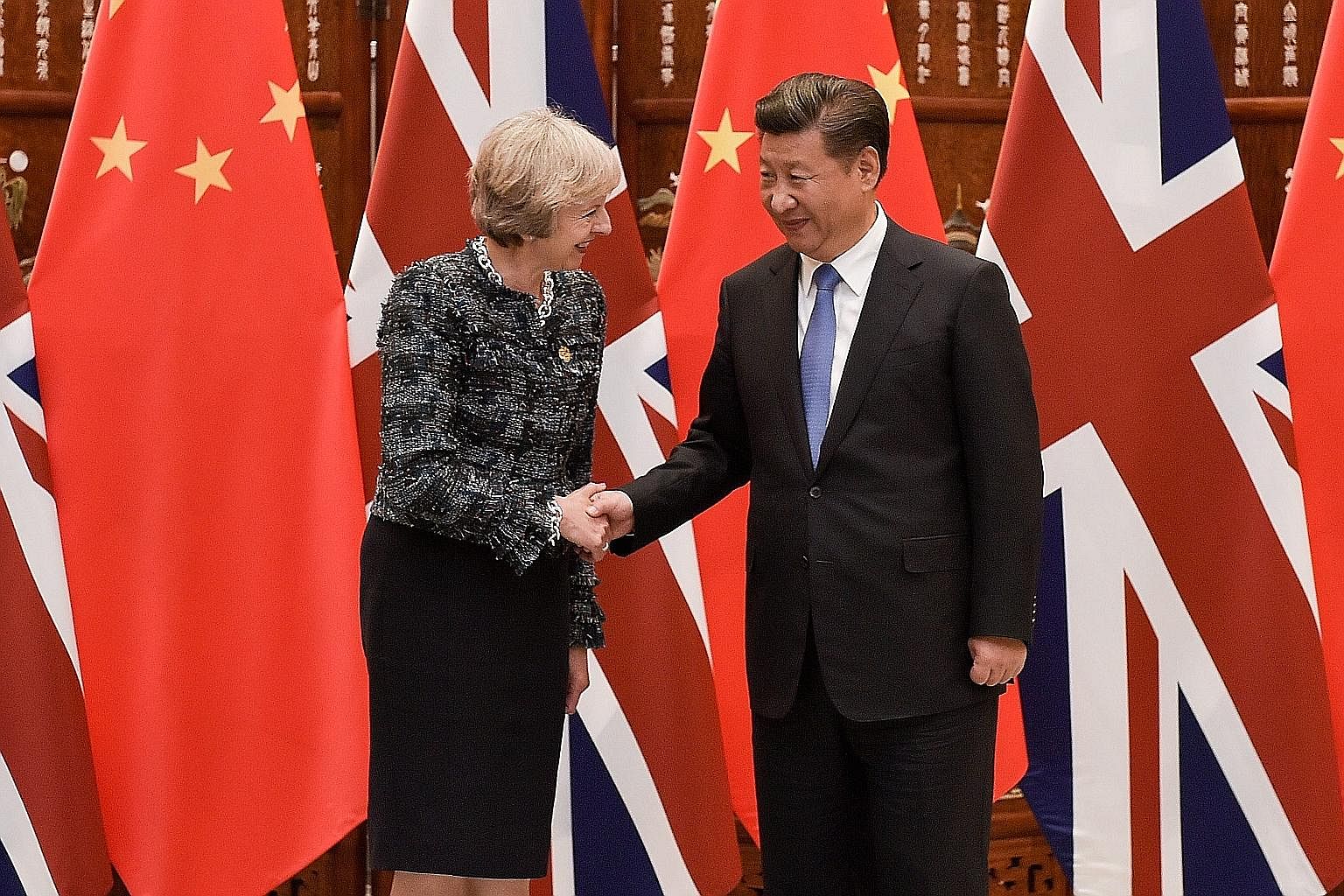British Prime Minister Theresa May is facing criticism for giving the go-ahead to China's involvement in the construction of a local nuclear power reactor just weeks after she ordered a review of the project due to potential security concerns.
"We have been marched up the hill and back here," complained Mr Vince Cable, a former business minister, who joined other critics in alleging that Mrs May had caved in to Chinese commercial pressure in allowing the deal to go through.
But the British government insists that it has obtained "significant new safeguards" for the nuclear deal, as well as guarantees that future investors will not be able to own stakes in British nuclear power projects without prior British government approval.
The nuclear power plant, scheduled to be built at Hinkley Point in the south-western part of Britain, has always been controversial.
Enthusiastically promoted by former British prime minister David Cameron and his then finance minister George Osborne, Hinkley is the most expensive electricity project in the world. It is a partnership between EDF, France's state-owned electricity company, and the China General Nuclear Power Group (CGN), which will own a 33.5 per cent stake in the plant.
Supporters of the scheme claim that, when fully operational in 2025, the nuclear plant will meet 7 per cent of Britain's overall electricity needs.

Hinkley Point will also create an estimated 25,000 jobs on what will be Europe's biggest single construction site. And the huge cost of the project - £18 billion (S$32.5 billion) in today's prices, will be borne by the builders, rather than British taxpayers.
Critics, however, say that the price which the British government guarantees to pay for buying electricity from the plant over the first 35 years of operation is far higher than current or anticipated energy prices; Britain's National Audit Office calculates that, overall, taxpayers may have to fork out a total of £29.7 billion.
But inside British government circles, the biggest debate has always been about the national security implications of China's involvement in the project.
The ability of a Chinese state-owned company to plug into Britain's electricity grid, one of the nation's most critical infrastructure networks, is unprecedented; so is CGN's plan to construct another nuclear plant in Britain, this time based on its proprietary Chinese-designed Hualong reactor prototype.
Mr Cameron had brushed aside all these concerns. But one of the first moves undertaken by Mrs May soon after replacing Mr Cameron in July was to freeze the Hinkley Point project, pending further review by officials.
China was quick to express its anger.
"The new British government," ran a commentary from China's state-owned Xinhua news agency, "is endangering the hard-won mutual trust" between the nations.
Mrs May was also confronted on the subject by Chinese President Xi Jinping on the margins of the recent Group of 20 Summit which the Chinese hosted.
The Chinese ambassador in London increased the pressure in subsequent briefings for the British media.
In allowing the deal to go through, the British authorities claim that all their concerns have been allayed. The guaranteed electricity price - more than double the current prices on wholesale energy markets - remains unchanged.
But EDF has now accepted that it will not be able to sell on its ownership in the project without prior British government permission; this reassures the British authorities who feared that the cash-strapped EDF may be tempted to bail out of the project at a later stage, and that China would end up as Hinkley Point's sole owner.
China's CGN was also given the go-ahead to proceed with constructing another nuclear reactor on its own, as originally planned. But the British government has announced that, in all future deals of this kind, it will insist on owning a "special share", which means it will have a veto over owners if there are national security concerns.
The opportunity to build a nuclear plant on British soil is a significant victory for Beijing, since this will be the first time China will erect a nuclear plant in a Western nation, a stepping stone to other markets.
But critics are unimpressed. They claim that the review of the complicated project which apparently took only one month is hardly worth its name; the government "backed down with a whimper" to the Chinese, claims Mr Barry Gardner, the shadow energy spokesman for the main opposition Labour party.
Prime Minister May has carefully avoided discussions on this topic. But her attitude is clear enough: Having come to office with a reputation as a sceptic on China, she is now mimicking Mr Cameron and praising a "new golden age" of cooperation with the Chinese.
